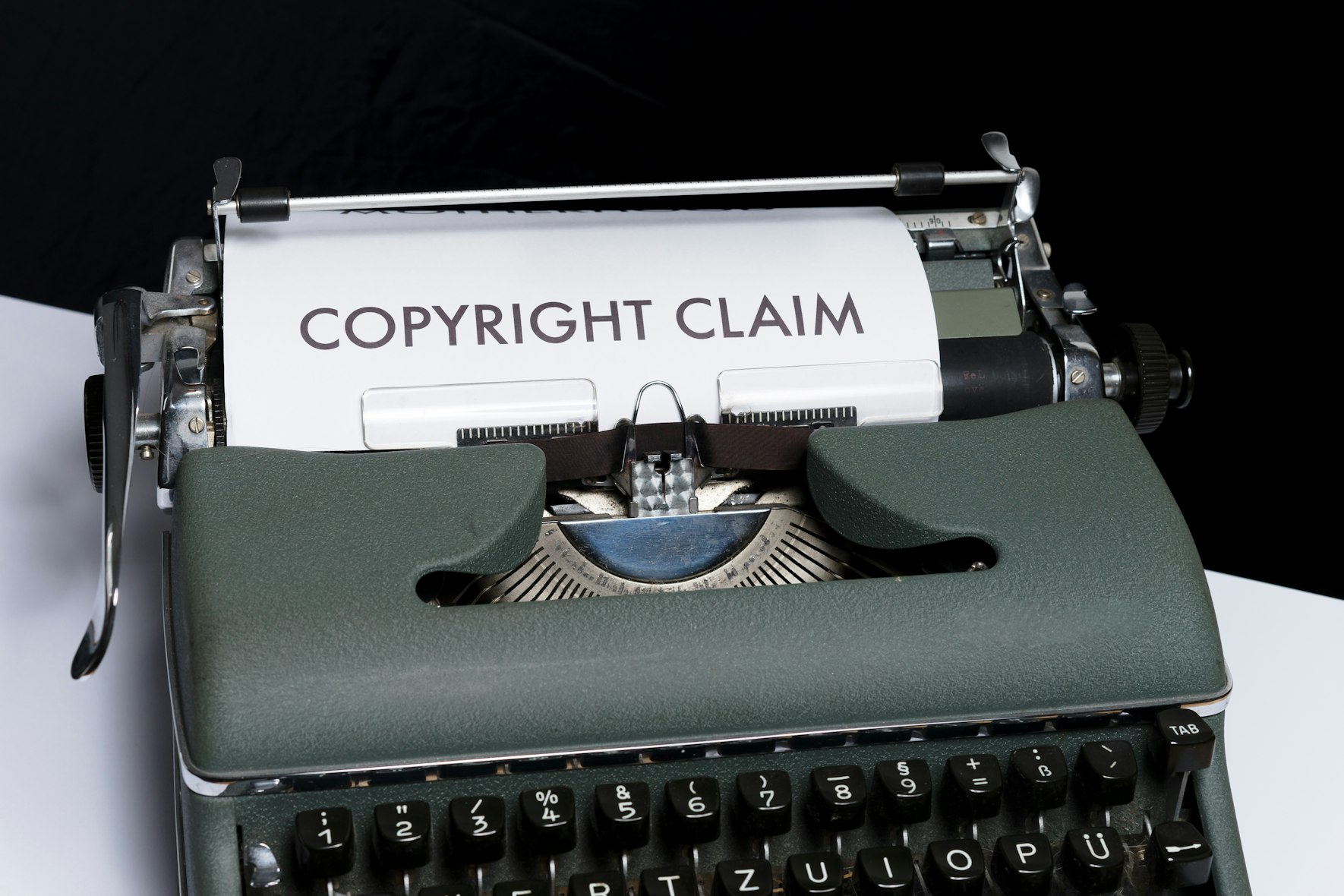Focus Keyword: Independence of Judiciary in Bangladesh
“The importance of an independent judiciary is not less but all the greater when judges have to serve under an all-powerful parliament dominated by a party cabinet, and concentrating all the powers and more than all powers of the executive and legislature combined in one coherent complex.” -Lord Hailsham (1)
The Judicial independence is a cornerstone of the rule of law. The doctrine of due process of law is also based on judicial independence. From time immemorial, the judicial system of Bangladesh has not been completely independent from the interference of the executive branch of the government. It has also been found that from the beginning of the British colonial rule, the question of separation of the judiciary from the executive had been a continuing debate. Presently, even after the separation of the judiciary, the interference of the executive over the judiciary is still continuing. Without separation of the judiciary from other organs of the state, the absolute independence of the judiciary is not possible. An attempt has been made in this write up to sketch the brief historical background of the judicial system in Bangladesh through analyzing the meaning and basic principles of judicial independence and to what extent these principles exist in Bangladesh.
Questions that now arise are- how was the judiciary finally separated from the executive? After separation of the judiciary, what is the status of executive interference over the judiciary in Bangladesh? These issues have been addressed below:
Historical Background and Developments (In a Nutshell):
The idea of independence of the judiciary was first worked out by a French philosopher Montesquieu, who articulated the famous “Theory of Separation of Power” in the sixteenth century. Separation of the judiciary from the executive refers to a position in which the judicial branch of government can act without any interference from other branches of government, particularly the executive.
The Constitution of Bangladesh provides for an impartial and independent judiciary as one of its cornerstones. In reality, though the judiciary has been subservient to the all-powerful executive government since independence in 1971, various governments made rhetorical promises to separate the judiciary from the executive only to appease popular demand for an independent judiciary. The domineering culture of executive autocracy over the constitutional imperative of the separation of power militated against the creation of an independent judiciary. This situation led Masdar Hossain, a lower court judge, to lodge a writ petition with the Supreme Court (SC) seeking an order for the separation of the judiciary from the executive as required in Article 22 of the Constitution.
The High Court Division (HCD) in May 1999 issued a directive to the government to separate the judiciary, both higher and lower, from the executive within eight weeks. This ruling prevailed on appeal in November 2000 and reaffirmed in the revision case in June 2001 in the Appellate Division (AD). The SC ruling worked out 12 directives for the government to implement the separation without any constitutional amendments, which went unheeded. Despite Articles 102 and 112 of the Constitution making all SC rulings binding for all citizens and authorities, the then government sought 26 extensions of time to implement the ruling and eventually left the office in October 2006 without separating the judiciary. The interim caretaker government that assumed office after October 2006 declared the separation in January 2007 and enacted four sets of rules to effect this separation. These rules, implemented by 1 July 2007, rendered the SC independent and brought the magistrates exercising judicial functions under the control of the SC, free of executive influence. This reform is yet to be implemented in the lower judiciary, which remains largely under the control of the executive.(2)
Introduction to the Doctrine of Separation and Elements of the Independence of Judiciary:
The Judiciary is an important organ of the government, which primarily administers the law by expounding and defining its true meaning. In a free society, the necessity of the judiciary is keenly felt to ascertain and decide both public and private rights, to administer justice, to punish crimes and to protect the innocent from injury and usurpation. (3)
At modern times, it is contended that the independence of the judiciary is principally a result of the doctrine of separation of powers, the doctrine which means the distribution of powers among different organs of the government. In earlier history, however, the doctrine had nothing to do with the independence of judges, but now it is said to have received its application in democratic countries by securing the independence of courts from the control of the executive. (4)
The most central and traditional meaning of the independence of the judiciary is that the judges are in a position to arrive at their decisions free from interference of the political branches, especially the executive, and apprehension for suffering personally as a result of exercising their judicial powers. But the concept of judicial independence has broadened over the years. Now it has many facets. Recent international efforts have particularly led four meanings of judicial independence:
a) Substantive independence
b) Personal independence
c) Collective independence
d) Internal independence
It is to be noted that the concept of substantive and personal independence is something that was always universally recognized in the legal world. But the latter two was first recognized by the International Bar Association’s Minimum Standards of Judicial Independence, 1982 and following them by the Montreal Universal Declaration on the Independence of Justice, 1983. This recognition is considered one of the most significant contributions of the international standards to judicial independence.
Importance of an Independent Judiciary:
Judicial independence is a sine qua non (an essential condition; a thing that is absolutely necessary) in a democratic society proclaiming the rule of law. For, it is the judiciary charged with the ultimate decision over life, liberty, freedom, rights, duties and property of citizens.
The Judiciary is an important organ of the government, which primarily administers the law by expounding and defining its true meaning. In a free society, the necessity of the judiciary is keenly felt to ascertain and decide both public and private rights, to administer justice, to punish crimes and to protect the innocent from injury and usurpation.
Since its modern beginnings, the international human rights law has incorporated the principle of judicial independence within its jurisprudence. The 1948 Universal Declaration of Human Rights enshrines the principle of the independence of the judiciary. (5) Similarly, the European Convention for the Protection of Human Rights and Fundamental Freedoms, 1950 provides that everyone is entitled to a fair public hearing within a reasonable time by an independent and impartial tribunal established by law. (6) Later, the International Covenant on Civil and Political Rights, 1966 imposed upon governments the duty to preserve the judicial independence in the administration of criminal justice. (7)
Referring to the importance of the independence of the judiciary, an eminent authority, namely, Henry Sidgwick, has gone so far as to say that “in determining a nation’s rank in political civilization, no test is more decisive than the degree in which justice as defined by the law is actually realized in its judicial administration…” (8)
· Enforcement of Fundamental Rights Through Independence of Judiciary:
The precise meaning and application of constitutionally guaranteed rights to particular situations is left to the judiciary. The enforcement of rights is assured only by an independent and impartial judiciary. In Madison’s words:
“Independent tribunals of justice will consider themselves in a peculiar manner the guardians of those (constitutionally protected) rights. They will be naturally led to resist every encroachment upon rights expressly stipulated in that Constitution by the declaration of rights.” (9)
Without an independent judiciary to interpret and enforce them, such constitutional guarantees are of little worth. One of the conclusions of the International Conference of Jurists, held in Bangkok in 1965, emphasized the importance of judicial independence to enforce rights thus:
“The ultimate protection of the individual in a society governed by Rule of Law depends upon the existence of an enlightened, independent and courageous judiciary and upon adequate provision for the speedy and effective administration of justice.”
Thus, a bill of rights will only be as effective as the judiciary is independent. Unless and until the common man finds that the judiciary upholds the constitutional guarantees independently and earnestly, the roots of the rule of law cannot go deep into the society. The judiciary must be the watchdog and formidable protector of the rights of the individuals entrenched in the constitution. “An impartial judiciary composed of competent judges is the best guarantee of proper administration of justice, and in the final analysis, of defense of human rights.” (10)
The increasing attention of the United Nations (the first U.N. Standards in the field is the Basic Principles on the independence of the Judiciary adopted in 1985), and other international organizations to formulate universal principles and safeguards of judicial independence, demonstrate the realization that the independence and impartiality of the courts are essential to the effective implementation of human rights instruments and perhaps, even more, important than providing for human rights.
· Protection of People Against the Usurpations of the Executive and Legislative Departments:
The independence of the judiciary is indispensable to secure the people against the intentional as well as unintentional usurpations of the executive and legislative departments. As Madison says:
“Independent tribunals of justice will consider themselves… an impenetrable bulwark against every assumption of power in the Legislature or Executive.” (11)
The citizen must look primarily to an independent judiciary for redress if there is a denial of benefits to which a citizen is entitled of unlawful interference with his freedom of action according to law. For example, in the United States, there is scarcely any sort of government action, or threatened government action, which is not subject to judicial review. America has indeed moved a long way in the direction of government by the judiciary. (12)
An independent and impartial judiciary can only determine whether the executive actions challenged were exercised outside the provisions of the constitution and other laws of the country. Other than reviewing executive actions, such a judiciary can also determine by reference to the constitution, the validity of challenged legislation remaining unaffected either by the policy or the wishes of the government.
Public Confidence in Judicial Impartiality:
The Judiciary, which is the last hope of the citizen contributes vitally to the preservation of social peace and order by setting legal disputes and thus promotes a harmonious and integrated society. The quantum of its contribution, however, largely depends upon the willingness of the people to present their problems before it and to submit to its judgments. What matters most, therefore, is the extent to which people have confidence in judicial impartiality. According to Justice Frankfurter “the confidence of the people is the ultimate reliance of the Court as an institution.” (13)
Thus the “independence of the judiciary lends prestige to the office of a judge and inspires confidence in the general public.”(14) In fact, the significance of public perception in the judiciary is well reflected in the oft quoted maxim that “Justice must not only be done, but also be seen to be done.” It is also reflected in the two basic rules of natural justice -impartiality and fairness of the proceedings applied for self-disqualification for bias. Hence public perception is one of the fundamental values of the administration of justice.
Hence the public perception of the independence of the judiciary is also to assure public confidence in the courts. As chief Justice Holland of the Ontario Supreme Court puts it in the case of R. v. Valente (15) thus-
“It is most important that the judiciary be independent and be so perceived by public. The Judge must not have cause to fear that they will be prejudiced by their decisions or that the public would reasonably apprehend this to be the case.”
It is hence justified to say that the independence of the judiciary is essential for maintaining purity of justice in the social system and enabling it to earn public confidence in the administration of justice.
The Present Scenario in Bangladesh:
In line with the landmark judicial decision by the Appellate Division in Masder Hossain case back in 1999, the Caretaker Government headed by Dr. Fakhruddin Ahmed amended the Criminal Procedure Code, 1898 in November, 2007 along with these changes the lower judiciary was separated from the organs of the executive. Although the term ‘executive magistrate’ still exists in the Code of Criminal Procedure, 1898, ‘executive magistrates’ are no longer vested with any judicial functions; their functions are administrative in nature. However, it is to be noted that by the Mobile Court Ordinance, 2007 (Ordinance No. 31 of 2007) some judicial powers have been given to the executive magistrates. Through the addition of sub-section (4) of section 190 of The Code of Criminal Procedure Amendment Act, 2009 the executive magistrates may hold the authority to send for trial to the court of competent jurisdiction under order specifying the reasons and the period stated by the Government. This is an exceptional situation. Besides this, the parliamentary standing committee on law, in line with the mounting pressure from the admin cadre, decided to recommend that the parliament vest authority in the government to empower executive magistrates to take cognizance in “extra-ordinary circumstances” or “in all circumstances”
The Parliamentary Committee has also suggested that this power of cognizance will be given to executive magistrates for maintaining law and order situation and this has nothing to do with trial and giving punishment. This easy logic sounds easy, but the consequence will lead to a very sordid picture in ensuring the rule of law in the country.
After November 1, 2007 the basic laws with regard to the separation of the judiciary are constituted through the Judicial Service Commission.
· Cognizance Power and Separation of Judiciary:
Giving cognizance power to executive magistrates gives rise to an expected question- Will it be an executive and/or administrative power or judicial power?
The answer is that cognizance is a judicial power and any misuse or abuse of such power is to be corrected through judicial process. This is normally done by filing an application in the High Court Division under section 561A of the CrPc. However, an executive power cannot be questioned in 561A application. Again, if cognizance power is given to executive magistrates, how will the apex court exercise its supervisory powers? So the accommodation of powers between judicial and executive magistrates will be difficult.
Also, if an executive magistrate is given the power questions like ‘Where will a petitioner or the informant file application against the decision of the executive magistrate?’ or ‘what will be the remedy for the accused against the rejection of bail prayer?’ or ‘where will he file prayer for consideration of bail?’ Hence the ultimate result will lead to a power clash between two authorities.
The parliament may give cognizance power to executive magistrates by special law like Special Powers Act if needed in special circumstances, but giving a blanket power to take cognizance in a general law like CrPC will mean dependent dispensation functions like before.
Most importantly, as cognizance power is a judicial power, and the same would be exercised by an executive magistrate, he be armed with subsequent powers associated with it as laid down in section 200 of the CrPC which will ultimately lead to a clash within a historic verdict in the Masder Hossain case as there will no longer remain a separate judiciary. This is because the Appellate Division held in the case that, “executive and administrative services of the Republic with which the judicial service cannot be placed on par on any account and that it cannot be amalgamated, abolished, replaced, mixed up and tied together with the civil executive and administrative services.” (para 76)
Debates regarding Article 22 of the Constitution and Separation of Judiciary:
The Constitution of Bangladesh in Article 22 speaks of the separation of the judiciary from the executive stating, “The State shall ensure the separation of the judiciary from the executive organs of the State.”
An argument which has been is that since Article 22 is not judicially enforceable, the separation of the judiciary as implemented by the two ordinances amending CrPC by the Caretaker Government is invalid. However, it is to be emphasized that the Appellate Division while delivering its judgment nowhere mentioned that it was giving directions to the government to implement Article 22 although Justice Latifur Rahman referred to this Article in paragraph 78 of the judgment. The decision and directions given in the Masder Hossain Case are based on the interpretation of Articles 115, 116, 116A of the Constitution which are mandatory in nature. For example,
Article 116A states,
“Subject to the provisions of the Constitution, all persons employed in the judicial service and all magistrates shall be independent in the exercise of their judicial functions.” (16)
Further, like Article 22, there are 18 Articles in the Constitution, which are not judicially enforceable. They are not judicially enforceable as such, but the Constitution itself makes it clear that these directives shall be applied in making laws by the Government and parliament and they shall act as a guide to the interpretation of the constitution and the laws of the country. Fundamental principles enunciated in the constitution like Article 22 are political commitments to the nation and the elected governments are oath bound to implement them on priority basis.
Now it remains to be seen how the government will give this judicial power to the executive magistrates and once this power is given to the question of legality of such power might come before the apex court by way of writ petition. (17)
Conclusion:
The foregoing discussion reveals that the central principle underlying the administration of justice is the independence of the judiciary. An enlightened, independent and courageous judiciary is the fundamental requisite, a basic element for the very existence of any society that respects the rule of law as a subservient judiciary cannot be relied upon to accomplish the task of protecting human rights and the rule of law.
If judicial independence exists in a democratic country like Bangladesh, absolutism in government cannot establish here. For it is the independent judiciary, which “stands between the subject and any attempted encroachments of his liberty by the executive, alert to see that any coercive action is justified in law.” (18)
It should be kept in mind that judicial independence is something that must never be taken for granted, and like freedom, exacts the price of eternal vigilance. “Justice” says Henry Cecil, “is such a precious commodity that everything reasonable should be done to attain the highest standard.”
An impartial administration of justice “is like oxygen in the air, they (the people) know and care nothing about it until it is withdrawn.” (Lord Atkin) In the long run, the manner in which judges perform their duties can build up public opinion for the courts and public opinion is a better safeguard for the independence of judges than laws and constitutional guarantees. The public will support the courts if they are seen as an effective impartial forum for resolving disputes. Hence the independence of the judiciary should be protected with utmost care.
——————————————————-
[1] Hailsham, Lord, The Door Wherein I went, 245 (1975)
[2] International Journal of Law and Management; Vol. 54 No. 1, 2012, pp. 61-77
[3] Dr. M. Ershadul Bari, Importance of an independent Judiciary in a Democratic State
[4] Philips, O. Hood (& Jackson, Paul) Constitutional & Administrative Law, 15 (1978)
[5] Article 10 of the Universal Declaration of Human Rights 1948
[6] Article 6(1) of the European Convention for the Protection of Human Rights and Fundamental Freedom
[7] Article 14 of the International Covenant on Civil and Political Rights, 1966
[8] Sidgwick Henry, The Elements of Politics, 481 (1897)
[9] Quoted in Agresto, J, Supreme Cort and Constitutional Democracy, 25 (1984)
[10] Annual Report of the Inter-American Commission of Human Rights, 182 (1985)
[11] Quoted in Agresto, J, op.cit, 25
[12] Griswold, Erwin N. “The Judiciary and the Government”, a paper presented at the 2nd International Conference of Appellate Judges, Australia 28 (1980)
[13] Frankfurter, “The Supreme Court in the Mirror of Justices” (1957), 105, University of Pennsylvania Law Review 781,796.
[14] Robson, W.A. Justice and Administration Law, 47 (1951)
[15] Ontario Ministry of Attorney General, White Paper on Courts Administration, 13 (1976)
[16] The Constitution of the People’s Republic of Bangladesh
[17] The Legal System of Bangladesh by MD Abdul Halim
[18] Lord Atkin in his memorable war-time dissent in Liversidge v. Anderson (1942) A.C. 206, 44
━━┅━━━┅━━
Copyright: Any unauthorized use or reproduction of Bangladesh Law Digest (BDLD) content for commercial purposes is strictly prohibited and constitutes copyright infringement liable to legal action.














